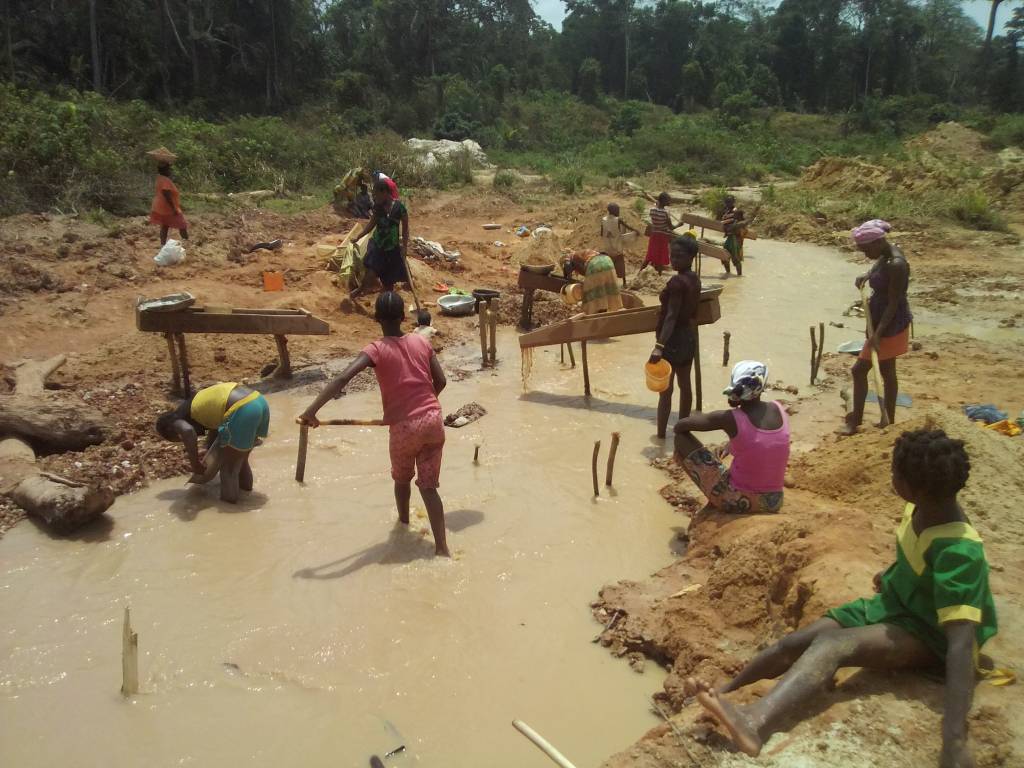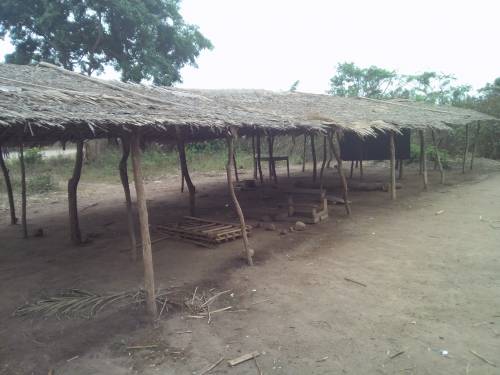Families abandon farms and schools for small-scale mining only to be trapped in a cycle of poverty
By Jaff Bamenjo | RELUFA, Joining Hands Cameroon
Artisanal mining, or small-scale mining using limited machinery, is the only direct means through which local communities can benefit economically from the mineral endowments of their country. In the east region of Cameroon, many localities are endowed with gold and diamonds. For many generations, inhabitants of such communities have been mining these mineral resources as their main source of revenue. But paradoxically, instead of making their lives better, artisanal gold and diamond mining has led to deeper poverty for those involved in the activity in the east region of Cameroon.
Since 2009, RELUFA, the Joining Hands network in Cameroon, has been monitoring artisanal gold and diamond mining and campaigning for the improvement of the general framework of artisanal mining in the country. RELUFA has spent time in many artisanal mining communities in the east region of Cameroon where we have witnessed the hardship endured by these artisanal miners. The example of Kambele near the town of Batouri in the East region of Cameroon where we observed closely the daily work of artisanal miners is quite telling.
Most of the local rivers running through the village are contaminated by mining activities and the waters have yellowed. Besides the contamination of local rivers and environmental degradation, artisanal miners in Kambele live their entire lives only on hope – hope of one day getting rich and averting poverty through their mining activities. But it is very unfortunate that in the process of hoping to improve their lives through artisanal mining, parents abandon agricultural activities and the children abandon school to work with their parents in the search for gold and diamonds. Hunger and poverty are therefore common in artisanal mining sites.
With this situation, artisanal mining unfortunately has not made the lives of artisanal miners and their children better. Family mining labor does not generate enough revenue to change a family’s socio-economic status or feed themselves. Commonly, middle men provide artisanal miners with food as a loan and then the miner must work to pay the middle man back with his mineral discoveries. The middle men do not pay a fair market value for mineral discoveries. Consequently, artisanal miners earn very little income from the minerals they discover. Generations of artisanal mining families therefore perpetuate the cycle of poverty.
Additionally, small companies primarily from Asia have started illegally operating open pit mines in the country. The companies leave the pits open even after mining operations have ended. Children and animals have fallen into these open pits and died. Artisanal miners enter the pits to look for minerals. This is always a dangerous exercise. On December 29, 2017, 9 people were buried in an open pit in the east region of Cameroon when a mud slide occurred. Such deaths are regular occurrences in other mining sites in the east region of Cameroon.
Since 2009, RELUFA has been monitoring artisanal gold and diamond mining and campaigning for the improvement of the general framework of artisanal mining in Cameroon. Neither artisanal nor industrial mining manage to lift communities out of poverty. Artisanal miners struggle to put food on the table for their families while industrial mining revenues fail to trickle down to benefit the local population. RELUFA, in witnessing the conditions on the ground, has decided to advocate for the improvement of the conditions of artisanal miners. Suggestions for some improvements that could be made: legal registration of their activities, provision of subsidized working tools, and insurance of fair prices for the minerals they extract so they can break out from their enslavement to middle men. These measures could contribute improving their livelihoods.

